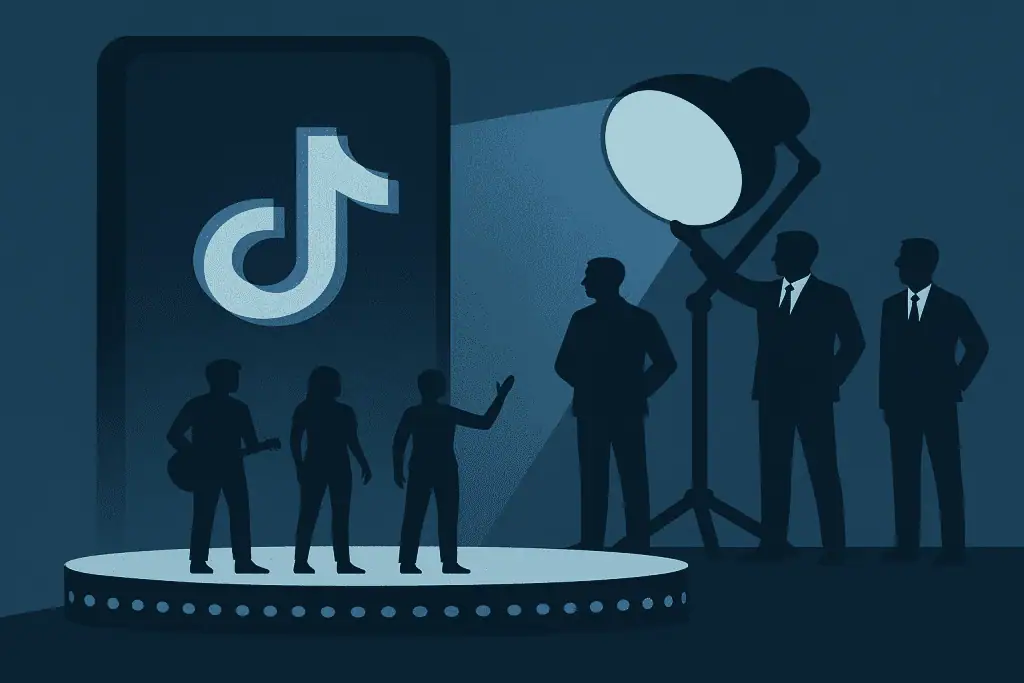TikTok Ownership Change Has Creators Worried About The Future
TikTok has become the stage where musicians, creators, influencers and activists could break through overnight. A great hook or a clever video could reach millions in hours. But now, with a TikTok ownership change looming, that sense of limitless opportunity is being replaced by uncertainty.
TikTok Ownership Change Has Creators Worried About The Future
As TikTok faces a likely ownership change in the United States, many are expressing growing concerns about how this shift could affect content moderation, algorithmic visibility and creative freedom.
These concerns are not abstract. They speak to real anxieties about censorship, political influence, and personal economic security.

Ownership Changes Shape Platform Culture
As we learned after Elon Musk‘s acquisition of Twitter (now X) ownership changes can shape a platforms culture and policies.
According President Trump, TikTok’s U.S. operations will soon be taken over by a group of American investors. China’s ByteDance will retain 20%. But the new owners reportedly include key investors Larry Elson’s Oracle, private equity firm Silver Lake and United Arab Emirates investment fund MGX. Others include Dell CEO Michael Dell and media moguls Rupert and Lachlan Murdoch.
All the new owners are Trump supporters and have varying ties to conservative causes.
For creators, this raises important questions.
Decisions about what gets promoted, what gets flagged, and what is considered “appropriate” can change subtly but significantly when new leadership takes over. Creators worry that political or ideological interests could shape the platform’s recommendation systems and moderation practices in ways that affect what kinds of content thrive.
Censorship Concerns Are Growing
TikTok has long faced criticism for inconsistent moderation and lack of transparency. Musicians and creators have experienced shadow bans, unexplained takedowns, or sudden drops in reach. Activists, LGBTQ+ communities, and users discussing political or social issues have often said that their content seems to face more scrutiny.
These problems existed long before this ownership change. But under new conservative-aligned leadership, many fear these issues could intensify or become more ideologically driven. Even if official content policies do not change dramatically, internal interpretation and enforcement of those policies could shift, affecting which voices are amplified or suppressed.
Algorithmic Bias Is a Subtle Form of Control
One of the most powerful aspects of TikTok is its algorithm. It decides what content reaches the coveted “For You” feed and who goes viral. This gives the company extraordinary influence over public conversation and cultural trends.
A recent study found evidence that political biases in TikTok’s content distribution already skewed right. During the 2024 U.S. election, researchers observed that Republican-leaning content was more likely to be shown to conservative users than Democratic content was to liberal users.
This kind of subtle algorithmic tilt matters, especially if new owners have clear political interests.
Economic Risk For Creators When Visibility Disappears
Creators worry less about outright censorship and more about becoming invisible. A small change in algorithmic weighting can quietly bury entire genres of content, often without explanation or recourse.
For many creators, TikTok is not just a creative outlet but a critical part of their business.
Musicians rely on viral moments to drive streaming numbers as well as free and affordable marketing. Influencers use the platform to reach new audiences and secure brand partnerships.
When algorithm changes or moderation shifts reduce visibility, the impact is immediate and financial. The 2024 dispute between TikTok and Universal Music Group highlighted this vulnerability. When UMG pulled its catalog, countless artists suddenly lost a key promotional channel. If ownership priorities shift and moderation culture changes, similar disruptions could happen again, affecting thousands of livelihoods.
Creators Are Seeking Clarity and Backup Plans
These concerns have led many to rethink their platform strategies. Many are diversifying their online presence, using YouTube Shorts, Instagram Reels, SubStack newsletters, or their own websites to build more stable audience connections.
The underlying desire is clear: all creators want stability, fairness, and clarity about how their work is treated on the platform. They also want to reduce their dependence on a single company that could change direction at any time.
A Cultural Turning Point
TikTok’s ownership change is more than a corporate deal. It’s a moment that could redefine one of the internet’s most influential cultural spaces.
TikTok became a creative powerhouse because it felt open, exacting and unpredictable. If creators lose trust in that, they will migrate elsewhere, taking their communities with them.
This is why the conversation happening among musicians, activists, and influencers right now matters. They are not just worried about TikTok ownership. They are concerned about that the creative ecosystem they helped build will remain vibrant, diverse, and fair.
Bruce Houghton is Founder & Editor of Hypebot, Senior Advisor at Bandsintown, a Berklee College Of Music professor and founder of Skyline Artists.